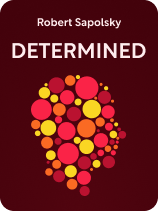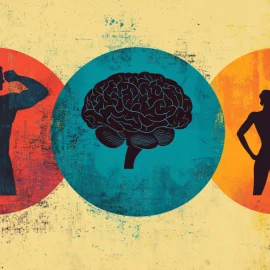

This article is an excerpt from the Shortform book guide to "Determined" by Robert Sapolsky. Shortform has the world's best summaries and analyses of books you should be reading.
Like this article? Sign up for a free trial here.
What’s the nature of free will? Is it possible for our actions to be both predetermined and freely chosen?
In his book Determined, Robert Sapolsky challenges the concept of compatibilism—free will and determinism coexisting in harmony. He argues that the universe doesn’t work that way.
Continue reading to challenge your understanding of choice and determinism as we unpack this fascinating philosophical debate.
Compatibilism (Free Will & Determinism)
According to the theory of compatibilism, free will and determinism can be true at the same time; in other words, they’re compatible with each other. Compatibilists believe the universe is deterministic and runs according to unchangeable laws of nature, but people are still able to make decisions within the constraints of those natural laws. In short, the compatibilist view is that determinism narrows your options (but it doesn’t narrow them down to just one option as Sapolsky believes).
For instance, you can’t flap your arms and fly to the grocery store, because doing so would break the laws of physics. However, you’re still free to choose whether to walk, bike, or drive to the store.
Sapolsky sees things differently. He believes that your brain determines what you do, and countless influences determine what your brain does. Therefore, what you experience as “making a choice” is really your brain processing all of the things influencing you at that moment and calculating a response.
Let’s return to the example of the trip to the grocery store. Sapolsky says that it seems like you’re deciding what mode of transportation to use, but you’re really being influenced by countless factors like convenience, how much energy you have, how much time you can spend on this trip, and how much storage space you’ll need. After considering all of those different elements you come to a single conclusion, which he says is the only conclusion you could possibly have reached under those specific circumstances.
| Stoic Philosophy and Compatibilism The compatibilist view of free will closely parallels some elements of Stoic philosophy. In The Discourses of Epictetus—one of Stoicism’s foundational texts—Epictetus teaches that the only thing you can completely control is your own mind. Everything else, from your physical body to your surroundings, is out of your control to varying degrees. Epictetus discusses the time he spent as a slave in order to illustrate this point. He says that even though someone else owned his body, nobody could ever own his mind. Therefore, even though he wasn’t in control of his own circumstances, he was in control of how he responded. Epictetus explains that he chose to obey his master; not because he had no will of his own, but because the consequences of disobedience were simply not worth it. Compatibilists would agree with this interpretation of events. Conversely, a strict determinist like Sapolsky would argue that Epictetus’s obedience was predetermined by the very thought process which led him to conclude that obedience was the rational choice. From this perspective, Epictetus’s decision to obey may have felt like a free choice, but it was really the inevitable result of his situation. |

———End of Preview———
Like what you just read? Read the rest of the world's best book summary and analysis of Robert Sapolsky's "Determined" at Shortform.
Here's what you'll find in our full Determined summary:
- Why some people believe we have free will—and others don’t
- Three implications of a world without free will
- Why we should live as though free will doesn’t exist (even if it does)






